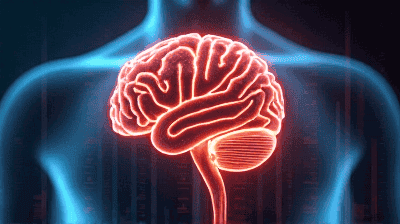
In recent years, the ketogenic diet, characterized by high fat and low carbohydrate intake, has gained widespread popularity as a potential solution for weight loss, improved energy levels, and even certain health conditions. At the core of this diet is a physiological state known as ketosis, a metabolic process that shifts the body's primary source of energy from carbohydrates to fats.
What is Ketosis?
Defining Ketosis
Ketosis is a metabolic state in which the body relies on ketone bodies—molecules produced from the breakdown of fats—as its main energy source instead of glucose derived from carbohydrates. This process occurs when carbohydrate intake is significantly reduced, prompting the liver to convert fatty acids into ketones, which are then used as fuel by various tissues, including the brain.
How Ketosis Occurs
Reduction of Carbohydrate Intake: In a standard diet, carbohydrates are converted into glucose, which serves as the body's primary energy source. When carbohydrate intake is drastically reduced, glucose levels drop.
Depletion of Glycogen Stores: Glycogen, the stored form of glucose in the liver and muscles, is limited. As carbohydrate consumption decreases and glycogen stores are depleted, the body turns to fat reserves for energy.
Ketogenesis: In the liver, fatty acids are converted into ketone bodies through a process called ketogenesis. The main types of ketones produced are acetoacetate, beta-hydroxybutyrate, and acetone.
Utilization of Ketones: Once produced, ketones are released into the bloodstream and transported to various tissues, including the brain, where they are utilized as an alternative energy source.
The Biochemistry of Ketosis

The Role of Insulin
Understanding ketosis requires a basic grasp of insulin, a hormone produced by the pancreas that regulates blood glucose levels. When carbohydrates are consumed, blood glucose levels rise, triggering insulin release. Insulin facilitates the uptake of glucose into cells for energy and promotes the storage of excess glucose as fat in adipose tissue. In a low-carb, high-fat diet, decreased insulin levels encourage the breakdown of fats for energy, facilitating the onset of ketosis.
Ketone Bodies: Types and Functions
Acetoacetate: This is the first ketone body produced during ketogenesis. It can be converted into beta-hydroxybutyrate or can be utilized directly by tissues for energy.
Beta-Hydroxybutyrate: Although technically not a ketone (it is a hydroxy fatty acid), beta-hydroxybutyrate is the most abundant and potent ketone body, serving as a significant energy source for various tissues, particularly during prolonged fasting or starvation.
Acetone: This is the least abundant ketone body and is primarily produced in small amounts. It is volatile, leading to its excretion in breath or urine. Acetone does not serve as a significant energy source but is often associated with the characteristic odor of ketosis.
The Energy Production Pathway
When glucose is scarce, and the body is in ketosis, the metabolism shifts. Beta-oxidation occurs, breaking down fatty acids into acetyl-CoA, which enters the citric acid cycle and leads to the production of adenosine triphosphate (ATP), the molecule responsible for energy transfer in cells. This shift significantly alters the body's energy production dynamics.
Effects of Ketosis on the Brain
The brain is a highly metabolic organ, requiring a constant supply of energy. While glucose is typically the primary source of fuel, the adaptation to using ketones during ketosis can have profound effects on brain function.
Enhanced Energy Efficiency
Ketones as Brain Fuel: The brain can utilize ketones as an efficient energy source, often more efficiently than glucose. This can lead to increased mitochondrial efficiency, the energy-producing units within cells.
Neuroprotection: Ketones may provide neuroprotective benefits, helping to reduce oxidative stress and inflammation in the brain. This could have implications for neurodegenerative diseases, such as Alzheimer’s and Parkinson’s.
Cognitive Function and Mood
Mental Clarity: Many individuals report enhanced mental clarity and focus while in ketosis. This could be due to the stable energy supply from ketones, contrasted with the energy fluctuations experienced with carbohydrate consumption.
Mood Stabilization: Some studies suggest that ketogenic diets may help stabilize mood and reduce anxiety and depression symptoms. This may be related to the anti-inflammatory effects of ketones on the brain.
Potential Risks
While ketosis can offer cognitive benefits, there are potential risks, particularly for certain individuals:
Keto Flu: When transitioning into ketosis, some people experience symptoms similar to flu, including headaches, fatigue, irritability, and difficulty concentrating. This "keto flu" is often temporary and tends to resolve as the body adapts.
Long-term Effects: The long-term effects of sustained ketosis are still being studied. Some concerns include potential nutrient deficiencies, electrolyte imbalances, and effects on gut health.
Impacts of Ketosis on the Body

Weight Loss and Metabolic Health
Fat Loss: Ketogenic diets have been shown to enhance fat loss, particularly visceral fat, which is linked to numerous health risks. The body begins to burn stored fat for energy more effectively, leading to weight loss.
Metabolic Syndrome: Research indicates that ketogenic diets may improve markers of metabolic syndrome, including insulin sensitivity, blood glucose levels, and lipid profiles. This can be particularly beneficial for individuals with type 2 diabetes or prediabetes.
Appetite Regulation
Reduced Hunger: Many individuals on ketogenic diets report reduced hunger and cravings. This can be attributed to the satiating effects of fats and the hormonal changes induced by ketosis, which influence hunger-regulating hormones such as ghrelin and leptin.
Calorie Restriction without Starvation: The high fat content may lead to a naturally reduced caloric intake, as fats are more filling and can lead to spontaneous calorie reduction.
Physical Performance
Endurance Activities: Some endurance athletes have adopted ketogenic diets to enhance fat oxidation during prolonged activities. The theory is that increased fat oxidation could spare glycogen stores, prolonging performance.
Short-Duration Exercise: Strength and high-intensity training may not benefit as much from a ketogenic diet. Carbohydrates are typically recommended for quick energy during short bursts of intense exercise.
Possible Adaptation Period: Athletes transitioning to a ketogenic diet may experience a temporary decline in performance as their bodies adapt to utilizing fats over carbohydrates for energy.
Health Benefits of Ketogenic Diets
Potential Therapeutic Uses
Epilepsy Management: The ketogenic diet was initially developed as a treatment for epilepsy, particularly in drug-resistant pediatric cases. Ketosis has been shown to significantly reduce seizure frequency in many individuals.
Metabolic Disorders: There is emerging research into the therapeutic effects of ketogenic diets for various metabolic disorders, including type 2 diabetes, obesity, and polycystic ovary syndrome (PCOS).
Neurodegenerative Diseases: Preliminary studies suggest that ketogenic diets may have potential benefits for individuals with neurodegenerative diseases, such as Alzheimer’s and Parkinson’s, potentially slowing disease progression.
Cancer Treatment: Some researchers are exploring the effects of ketogenic diets on cancer treatment. The idea is that cancer cells predominantly rely on glucose for energy, and shifting the body into ketosis could create an environment where cancer cells struggle to thrive.
Supporting Gut Health
Emerging research suggests that the ketogenic diet may positively influence gut health, potentially aiding in conditions like irritable bowel syndrome (IBS) and inflammatory bowel disease (IBD). The high-fat content and reduced carbohydrate intake can alter the gut microbiome composition, promoting beneficial bacteria.
Risks and Considerations of Ketogenic Diets

Nutrient Deficiencies
Adopting a ketogenic diet without proper planning can lead to nutrient deficiencies. Essential vitamins and minerals, particularly those found in fruits, vegetables, and whole grains, may be lacking. Key nutrients to monitor include:
Electrolytes: Sodium, potassium, and magnesium levels should be monitored, as ketogenic diets can lead to increased excretion of these electrolytes.
Fiber: A reduction in carbohydrate intake can lead to decreased fiber consumption. Insufficient fiber intake can affect digestive health and regular bowel movements.
Vitamins and Minerals: If the diet lacks diversity, it may result in deficiencies in essential vitamins, such as vitamin C, folate, and vitamin B6.
Long-term Health Risks
While many people can safely follow a ketogenic diet, concerns have been raised regarding potential long-term health impacts:
Heart Health: High saturated fat intake has raised concerns about heart disease risk. It is crucial to focus on healthy fats from sources like avocados, nuts, seeds, and olive oil rather than unhealthy fats from processed foods.
Bone Health: Some studies indicate potential negative effects on bone health with long-term ketogenic diets. Factors such as nutrient absorption, bone mineral density, and hormonal changes warrant further investigation.
Kidney Stones: Increased protein intake and changes in urinary composition can elevate the risk of kidney stones in susceptible individuals.
Individual Variability
The response to a ketogenic diet can be highly individual. Factors such as genetics, existing health conditions, age, and lifestyle all play a role in determining how well an individual adapts to this dietary approach.
Practical Tips for Transitioning to Ketosis
Gradual Transition
For those interested in adopting a ketogenic lifestyle, a gradual transition may help reduce the severity of keto flu symptoms. Gradually reducing carbohydrate intake over several days can help the body adapt more smoothly.
Focus on Healthy Fats
Prioritize healthy fat sources such as:
Avocados: Rich in monounsaturated fats, fiber, and various vitamins and minerals.
Nuts and Seeds: Excellent sources of healthy fats, protein, fiber, and important nutrients.
Olive Oil and Coconut Oil: Healthy oils to use for cooking and salad dressings.
Fatty Fish: Sources of omega-3 fatty acids, which have anti-inflammatory properties.
Meal Planning
Planning meals in advance can assist in maintaining a balanced ketogenic diet. Include a variety of nutrient-dense foods and ensure you are meeting your daily caloric and nutritional needs.
Monitor Hydration and Electrolyte Balance
Stay hydrated and consider consulting with a healthcare provider about electrolyte supplementation, particularly during the early stages of transitioning to a ketogenic diet.
Track Your Progress
Monitoring your dietary intake, energy levels, physical performance, and any bodily changes can help you understand how your body responds to the ketogenic diet. Various apps are available to simplify tracking macronutrients and overall health.
Conclusion
Ketosis is a fascinating metabolic state with significant implications for brain and body health. By embracing a high-fat, low-carbohydrate diet, individuals can experience various benefits, including improved energy levels, weight loss, and potential therapeutic advantages for certain health conditions. However, it is essential to approach this lifestyle change with a well-informed perspective, considering the potential risks, individual variability, and the importance of a balanced, nutrient-dense diet.
As research continues to unfold, the full impact of ketosis on health will be better understood. For those considering this dietary approach, it is advisable to consult with a healthcare provider or nutritionist to ensure that it aligns with personal health goals and needs. With the right mindset and planning, the ketogenic diet may unlock new pathways to health and vitality.








